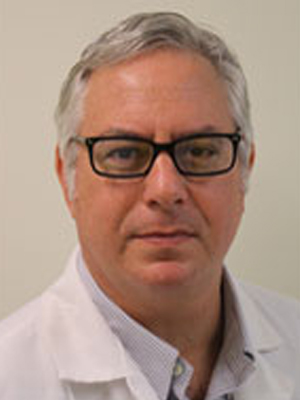
The Basic Science sessions for ACR Convergence 2020 will cover topics relevant to rheumatologists and rheumatology professionals, increasing understanding of the scientific foundations behind researchers developing new theories about how pathogenesis occurs and new diagnostic tests and theories.
“This year has had unique challenges but great opportunities,” said Basic Science Subchair Gregg Silverman, MD, Professor of Medicine and Pathology at the New York University School of Medicine.
The Basic Science program also has two sessions providing updates on the Accelerating Medicines Partnership (AMP), a cooperative effort of industry and the NIH that brings together groups of investigators performing cutting-edge studies of autoimmune pathogenesis. Molecular Insights from the Accelerating Medicines Partnership (AMP): Systemic Lupus Erythematosus takes place Sunday, Nov. 8, from 10 – 11 a.m. EST, and “Molecular Insights from the Accelerating Medicines Partnership (AMP): Rheumatoid Arthritis” takes place Monday, Nov. 9, from 3 – 4:15 p.m.
Additional sessions highlighted by Dr. Silverman include:
Immunology Update: Single Cell Technologies and New Insights in SLE
Friday, Nov. 6 | 10 – 10:45 a.m.
Immunology Update sessions explain the basic science of recent advances in pathogenesis, diagnosis and treatment. Investigations of SLE has led to new insights, and remarkable advances in the technology for single cell RNA sequencing and identification of pathogenic cell types and the RNA that they carry. The speakers will offer insight into the deep science behind this rapidly accelerating technology, which is providing a better understanding of the cellular and molecular drivers of disease.
Immunology Update–The Decade in Review: 10 Steps to SLE
Friday, Nov. 6 | 3 – 3:45 p.m.
This session will review the big lessons from the past decade that helped researchers understand the drivers for SLE pathogenesis, including the mechanisms that underlie SLE immune abnormalities. Attendees will also gain important knowledge related to the development of novel therapeutic strategies for this systemic autoimmune disease.
Pain in OA and RA: From Basic Mechanisms to Pain Phenotypes
Friday, Nov. 6 | 4 – 5 p.m.
Many rheumatologic conditions are associated with considerable pain, and this relevant session will have practical implications for understanding and treating OA and RA pain. In this session, we will learn about the basic mechanisms responsible for pain, which are just beginning to be understood, along with the various phenotypes of pain and how that understanding can lead to better ways to treat pain more effectively.
IL-17, IL-23 and Other Cytokine Targets: Lessons from Clinical Trials for Spondyloarthritis
Saturday, Nov. 7 | 11 a.m. – 12 p.m.
Session speakers highlight findings from clinical trials of targeted, antibody-based therapies. These studies have advanced our understanding about how these cytokines contribute to pathogenesis of these diseases and how to fine-tune therapies. Presentations will focus on axial disease versus peripheral joint disease.
and also discuss the relationship with murine models. These data have begun to rationalize emerging hypotheses on the differential roles of these cytokines in pathogenesis.
Resetting Immune Tolerance for the Prevention of RA
Sunday, Nov. 8 | 3 – 4 p.m.
An international roster of speakers for this session will present different perspectives on preclinical autoimmunity and a reconceptualization of how RA progresses through sequential stages. These leaders in academic medicine will discuss whether already-developed immune-modulating medications could be used earlier in the disease process to prevent progression to overt joint injury or possibly reverse damage and bring back a healthy, balanced immune system. “The panel discussion at the end, itself, will be well-worth the price of admission,” Dr. Silverman said.
A 2020 Vision of B-Cell Depletion
Sunday, Nov. 8 | 5 – 6 p.m.
These targeted therapies have been around for more than a decade and have provided clinical benefits for many patients with autoimmune disease. Researchers have also learned more about how B-cells contribute to pathogenesis in that time. This session also will discuss the potential of CAR-T therapy in SLE and other immune-mediated diseases, and the use of proteasome inhibitors in autoimmune disease treatment.
Modulation of RA Disease Activity Through Dietary Restoration of the Microbiome
Monday, Nov. 9 | 12 – 1 p.m.
Interest continues to grow concerning the role of commensal bacteria in overall health and, especially relevant to rheumatology, the regulation of the immune system. Mounting evidence shows that imbalances in these microbial communities may contribute to the development of inflammatory and autoimmune diseases such as rheumatoid arthritis and lupus. Session speakers will explain what’s understood about these disturbances of the bacterial communities of patients with RA and the scientific-based efforts to use dietary changes to create better balance within the intestinal microbial community that improve patient outcomes.
Pathogenesis of Checkpoint-Induced Arthritis
Monday, Nov. 9 | 4:15 – 5:15 p.m.
Great progress has been made in the treatment of advanced cancer by use of an antibody-based approach to wake up the immune system to directly attack the cancer cells. Unfortunately, some patients can be affected by substantial inflammatory and autoimmune side effects. This year, 20%-40% of the more than 400,000 patients treated with checkpoint inhibitors will develop immune-related adverse events. This session will suggest approaches to translating current knowledge of the molecular and cellular mechanisms that underlie the pathogenesis of these on target side effects.
